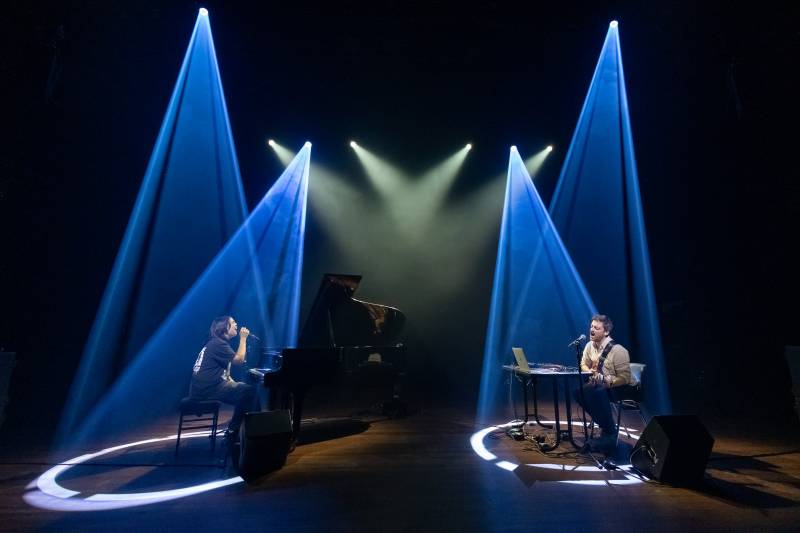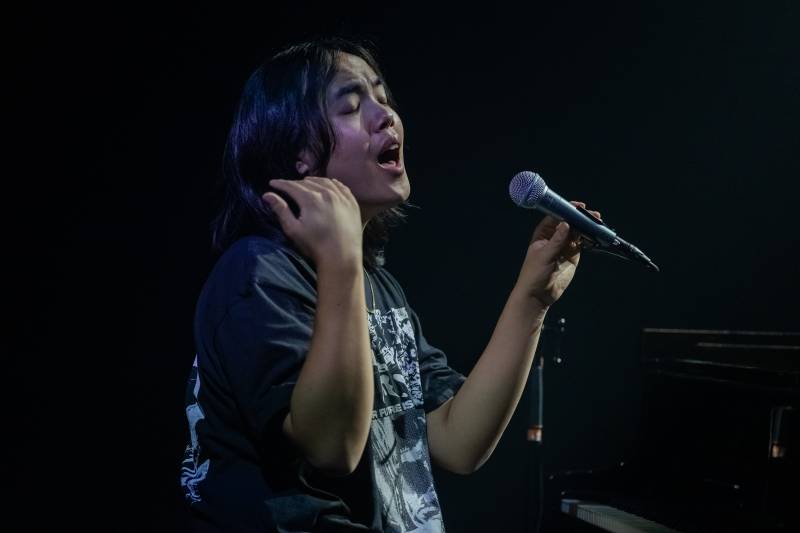One of Lucy Liyou’s formative musical experiences came upon hearing Mariah Carey for the first time as a child. At the time, the San Francisco-based experimental musician mostly listened to her dad’s classic rock and the Chopin nocturnes she practiced as a piano student. But when her cousins played her Mariah, she knew she was hearing something special.
“It was just like an explosion,” Liyou recalls over Zoom from Switzerland during her April European tour. “Imagine I’m listening to Hotel California or whatever, and then suddenly you hear somebody just use the elasticity of their voice in such crazy ways. It changed so much for me.”
This might be surprising if you came to Liyou’s music through her 2020 debut Welfare, sung entirely by a text-to-speech app that sounds like a malevolent robot. But for her new album Dog Dreams (개꿈), the 25-year-old sought a more intimate feeling, one that required getting in touch with her inner Songbird Supreme.
Scheduled to release May 12 via Chicago label American Dreams, Dog Dreams is Liyou’s first album to foreground her own vocals. It’s no less outré than her past work, eschewing drums almost entirely on songs that flirt with or surpass the 10-minute mark. In the record’s best moments, Liyou makes a case for herself as an avant-garde answer to elegant, inspirational divas like Mariah.
Sometimes she’s belting grand, theatrical exhortations of desire. The rest of the time, she’s whispering mere inches from the microphone, and her vocals are sometimes mixed so quietly they become as much of a textural element as her piano and synth.

“I think I realized from a young age what singing could do,” she says. “I just think it took a really long time for me to realize that that was something I could do, too.”
Liyou identifies desire as one of the album’s primary themes — for a lover, for a friend, or more broadly “to understand what it means to truly feel at home with who I am.” Liyou, who identifies as transgender, says that these desires are “interconnected and woven together for a lot of people who are trans.”
At its best, Dog Dreams creates an alternate plane of reality where those desires can become real. In contrast to the alienness of Welfare or the slice-of-life sound collages on her 2021 follow-up, Practice, Dog Dreams sounds opulent, glassy, luxurious. There’s a moment where Liyou wishes for “Disney strings” and immediately receives them.

Mariah Carey’s voice appears twice on the album, once in recognizable form and once abstracted, but the sense of aspirational glamor through which the “Fantasy” singer enchants her legions of “lambs” is present in every moment of this very experimental music. Though Dog Dreams is Liyou’s most accessible release thanks to its quiet textures and foregrounding of vocals, it’s still a formidable package: three songs in 35 minutes, two of them over 10 minutes long, proportions more akin to a prog-rock or free jazz album than The Emancipation of Mimi.
“I think there’s something really powerful about consolidating so many different ideas and emotions into a succinct three minutes,” says Liyou. “But I didn’t really think too much about it.”
The only part of the album where Liyou was “adamant about the length of something” was the 14-minute title track, which takes up the entire first side of the LP version and opens with a long passage composed primarily of the distorted sound of the musician’s own saliva.



